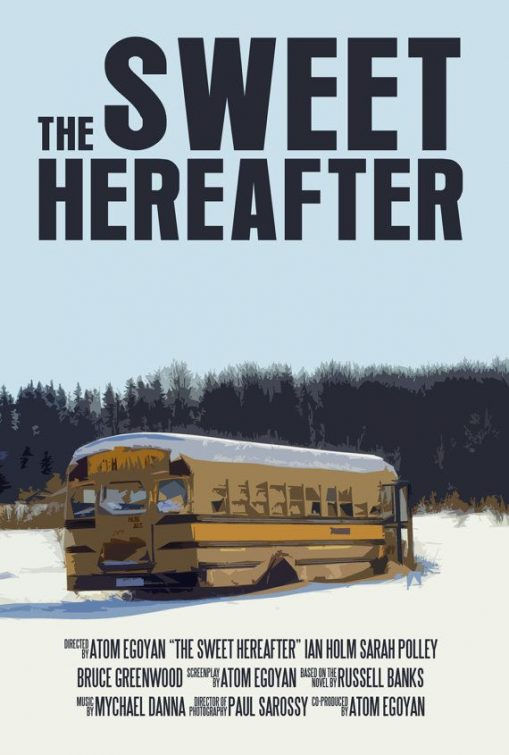The Sweet Hereafter
- Alexandria Taylor

- Sep 29, 2019
- 2 min read
The Sweet Hereafter is, in my very strong opinion, a mess of a film and a mess of an adaptation, derived from several sources in what I'm sure director Atom Egoyan wanted to be a genius assimilation, but rather is a shakily composed mess of unfitting pieces. As we study adaption as a field, it serves as a great example of authorship and poses the question of who really is the author behind a piece of work.

The original story that inspired the eventual movie was a bus crash that happened in Texas in 1989. That story was adapted into a novel, The Sweet Hereafter, which was further adapted into a film. Within the film itself, the classic story of the Pied Piper is read by the central character, Nicole, throughout the film in an attempt to parallel the film's plot with the story.
Authorship is an important question to ask not only for this particular film, but for adaptation as a field of study. Who we credit with authorship carries a lot of weight, both professionally and culturally, especially if their body of work is popular and successful.
Historically stories were communicated orally and crossed cultures and decades--centuries even--with no credited author. These fairytales and folklore became embedded in the culture itself; its ownership was with the people. With the invention of the printing press, written material was easily dispersed quickly and cheaply, and now the name of the writer was apart of the body of work the reader received.
The Author quickly became what French literary theorist Roland Barthes refers to as "Author-God". Their status becomes inflated and revered similar to a deity. The work cannot be judged, critiqued or evaluated without consideration of the Author. The Author's personal life is often considered when looking at their work, when in reality they should function independently. For example, Woody Allen, a very famous director, has now been "canceled" for his problematic and borderline incestuous relationship with his step-daughter. His latest movie, A Rainy Day in New York, has been halted from release. His Author-God status has been taken down on account of his private life.
The Author-God is looked to for ultimate interpretation of the work they produce; the power is no longer with the viewer or reader as it should be. No longer do we have the creative freedom to assign meaning to the work--the consumer is rendered powerless to the one interpretation. This eradicates the joy of exploration.
As for The Sweet Hereafter, authorship remains ambiguous. If we finally achieve the eradication of the Author-God status and detach the film from the director's name we can more accurately decode the film for what it is: not very good!





Comments